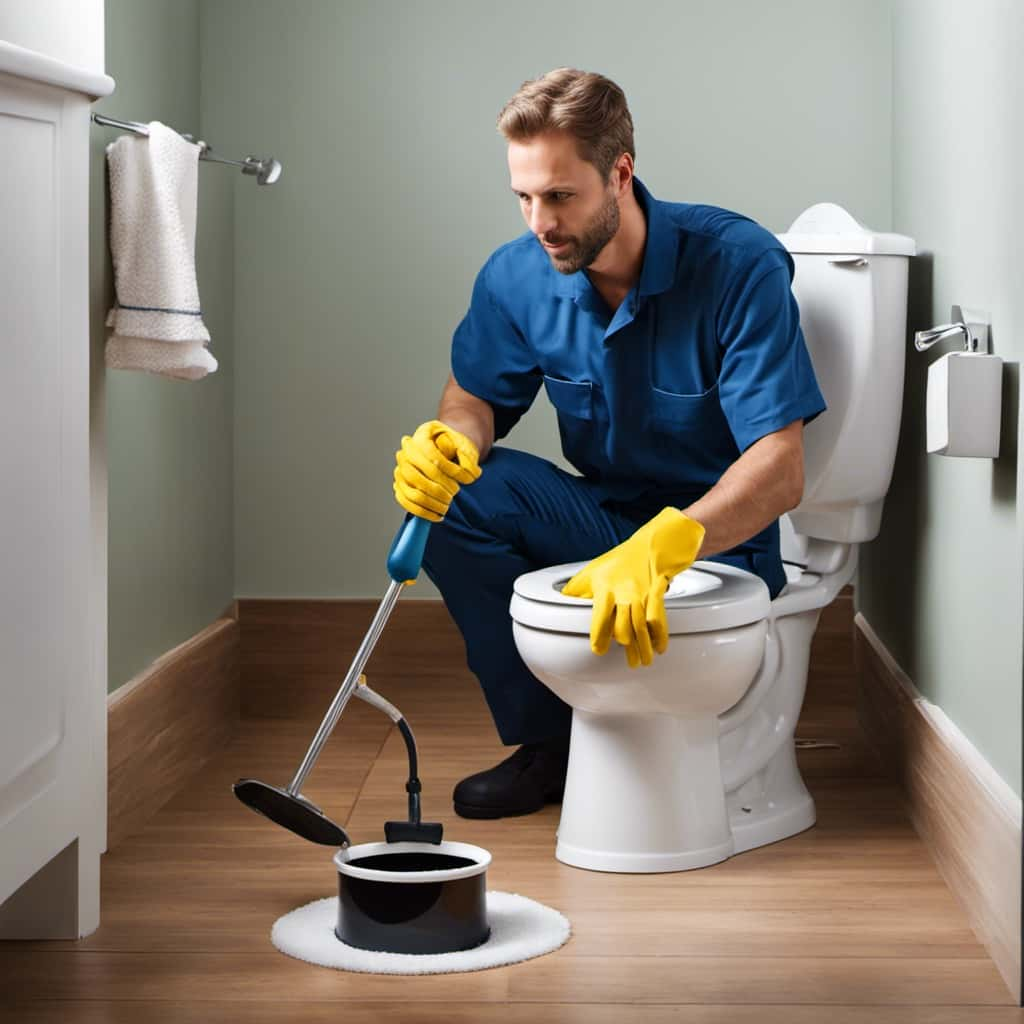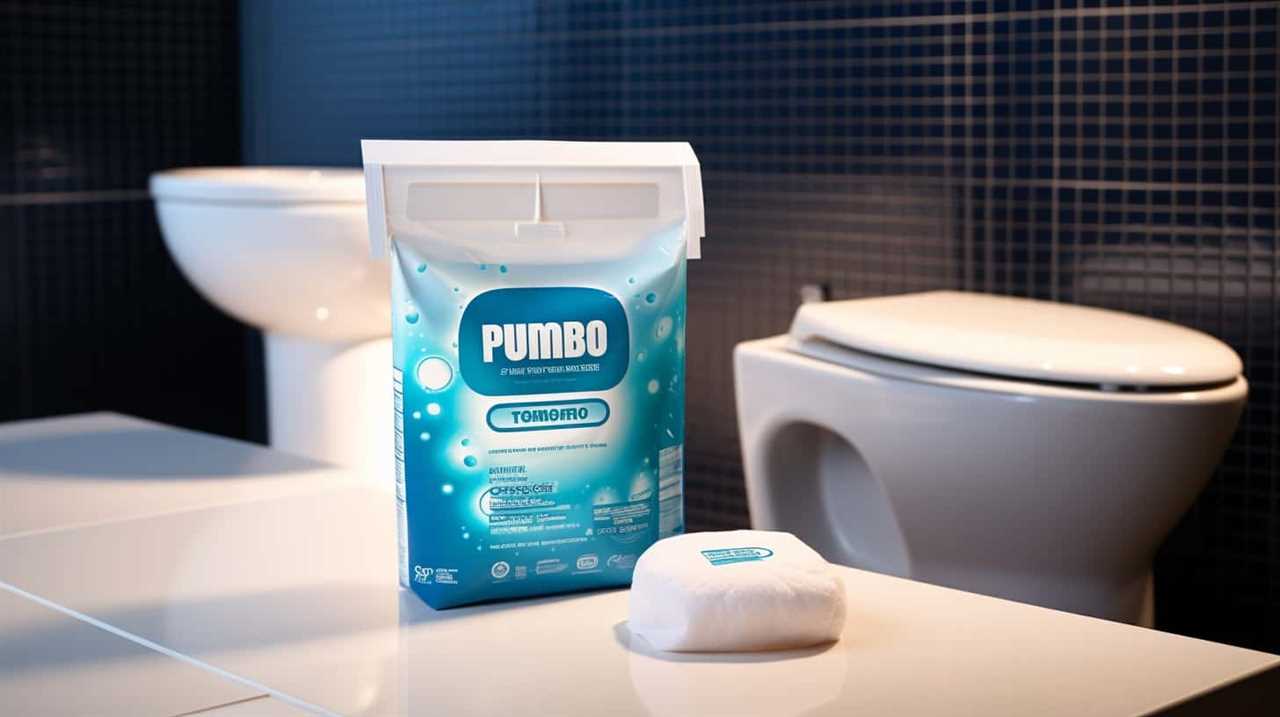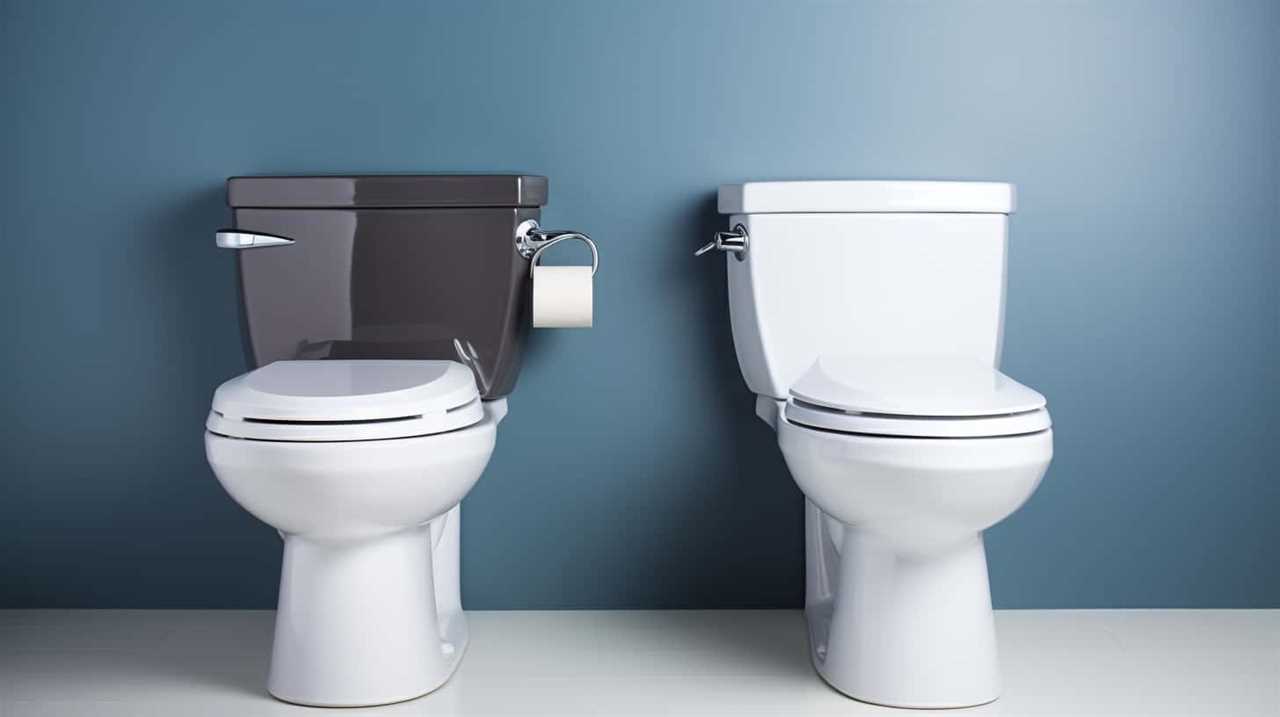We believed we were well-informed about toilets, but we were mistaken! It appears there are certain items that should never be flushed down the toilet.
In our quest for mastery over toilet etiquette, we’ve discovered a few surprising culprits that can wreak havoc on our plumbing. So, if you want to avoid clogs and costly repairs, listen up!
We’re about to reveal the things you should never, ever flush down the toilet.
Key Takeaways
- Non-flushable personal hygiene products such as sanitary pads and baby wipes should not be flushed down the toilet to prevent plumbing damage and costly repairs.
- Grease, fats, and oils should never be poured down the toilet as they can solidify and clog pipes, leading to expensive repairs and harm to the environment.
- Medications and chemicals should not be flushed down the toilet to prevent water contamination and harm to aquatic life. They should be disposed of through drug take-back programs or designated collection centers.
- Paper towels and tissues should not be flushed down the toilet as they can cause clogs in the plumbing system and contribute to pollution. Proper disposal options include using waste bins or composting.
Non-Flushable Personal Hygiene Products
- We shouldn’t flush any non-flushable personal hygiene products down the toilet. This includes items like sanitary pads and baby wipes.
Flushing these products can cause serious damage to our plumbing systems and lead to costly repairs. While these items may seem small, they can accumulate and clog pipes, leading to blockages and backups.

Additionally, flushing non-flushable personal hygiene products can have a negative impact on the environment. These items don’t break down easily and can end up in our waterways, causing pollution and harm to wildlife.
It’s important to properly dispose of these items in the trash to prevent these issues. By doing so, we can maintain the functionality of our plumbing systems and protect the environment.
Grease, Fats, and Oils
Grease, fats, and oils should never be poured down the toilet. Not only can they cause plumbing issues, but they also have a significant environmental impact.
When grease, fats, and oils are poured down the toilet, they can solidify and clog the pipes. This can lead to expensive repairs and inconvenience.

Furthermore, these substances can also harm the environment. When they enter the sewage system, they can mix with other materials and form clumps that can block the flow of wastewater. This can result in sewage backups and overflows, which can contaminate water sources and harm aquatic life.
To properly dispose of grease, fats, and oils, it’s recommended to let them cool and solidify, then scrape them into a container and dispose of them in the trash.
Medications and Chemicals
To continue our discussion on what shouldn’t be poured down the toilet, another item that should never be disposed of in this way is medications and chemicals.
Improper disposal of medications and chemicals can have serious environmental impacts. Flushing them down the toilet can contaminate our water sources, harm aquatic life, and even end up in our drinking water. It’s essential to use proper disposal methods for these substances.

Many communities have drug take-back programs where you can safely dispose of unused or expired medications. Additionally, household chemicals should be disposed of at designated collection centers or through hazardous waste disposal programs. By taking these steps, we can protect our environment and prevent the harmful effects that medications and chemicals can have on our water systems.
Now, let’s move on to discuss the next item on our list: paper towels and tissues.
Paper Towels and Tissues
Continuing our discussion on proper toilet disposal, it’s important to address the issue of paper towels and tissues.
While it may be tempting to flush these items down the toilet, it’s crucial to remember that they aren’t designed to break down in water like toilet paper.

Flushing paper towels and tissues can lead to clogs in your plumbing system, causing costly repairs.
Additionally, these items have a negative environmental impact. Unlike toilet paper, paper towels and tissues aren’t made to dissolve easily and can contribute to clogging in sewer systems, leading to backups and pollution.
To properly dispose of paper towels and tissues, consider using alternative options such as placing them in a waste bin or composting them.
Cat Litter and Pet Waste
Let’s talk about the proper disposal of cat litter and pet waste. When it comes to flushing pet waste down the toilet, it’s important to consider the environmental impact. Flushing cat litter can introduce harmful bacteria and parasites into the water system, posing a risk to aquatic life and human health.

Instead, here are some alternatives to flushing pet waste:
- Scoop the waste into a biodegradable bag and dispose of it in the trash.
- Use compostable cat litter made from natural materials.
- Consider installing a pet waste disposal system in your yard, which allows for proper containment and decomposition.
By choosing these alternatives, we can minimize the negative effects on the environment while still maintaining cleanliness and hygiene.
Let’s be responsible pet owners and make the right choices for our furry friends and the planet.
Frequently Asked Questions
Can I Flush Baby Wipes Down the Toilet?
Flushing baby wipes down the toilet can lead to serious plumbing issues. It’s important to know the disadvantages of using baby wipes and the alternative methods for disposing of them properly.

What Happens if I Pour Cooking Oil or Grease Down the Toilet?
Pouring cooking oil or grease down the toilet is not recommended. It can cause clogs and damage to the plumbing system. There are better disposal alternatives, such as letting it cool and then throwing it in the trash. This helps minimize the environmental impact.
Are There Any Safe Ways to Dispose of Expired Medications?
Safe disposal methods for expired medications include utilizing medication take-back programs or participating in drug disposal events. Flushing medications down the toilet should be avoided due to potential environmental impacts.
Can I Flush Paper Towels or Tissues Down the Toilet if It’s Just a Small Amount?
We should avoid flushing paper towels or tissues down the toilet, even in small amounts. There are safe alternatives available, such as disposing of them in the trash. Flushing non-biodegradable materials can have a negative environmental impact.
Is It Safe to Flush Cat Litter Made From Biodegradable Materials?
Flushing biodegradable cat litter may seem harmless, but it can have environmental consequences. To ensure safe disposal, use composting or trash bins. Let’s explore the proper methods to protect our environment.

Conclusion
In conclusion, it’s crucial to remember that toilets aren’t trash cans. Avoid flushing non-flushable products, such as personal hygiene items, down the toilet. Additionally, steer clear of pouring grease, fats, and oils as they can clog pipes.
Medications and chemicals should be disposed of properly to prevent harm to the environment. Lastly, paper towels, tissues, cat litter, and pet waste should go in the trash instead.
Let’s keep our toilets tidy and trouble-free!









